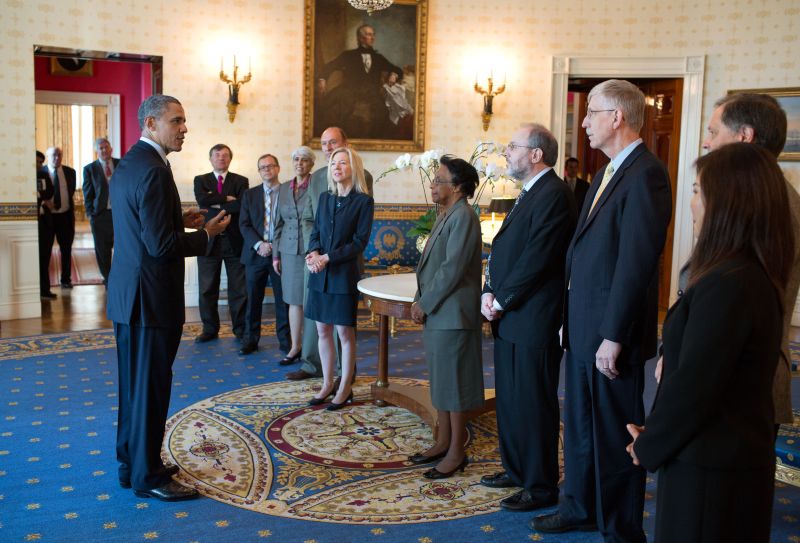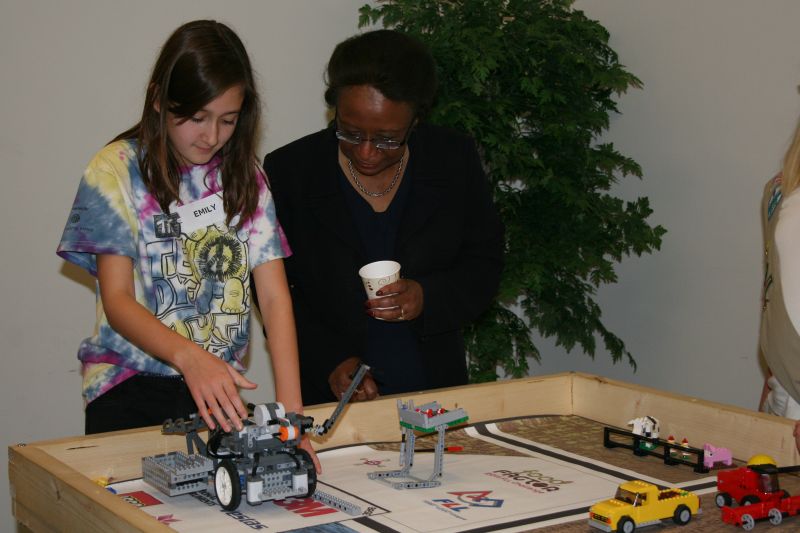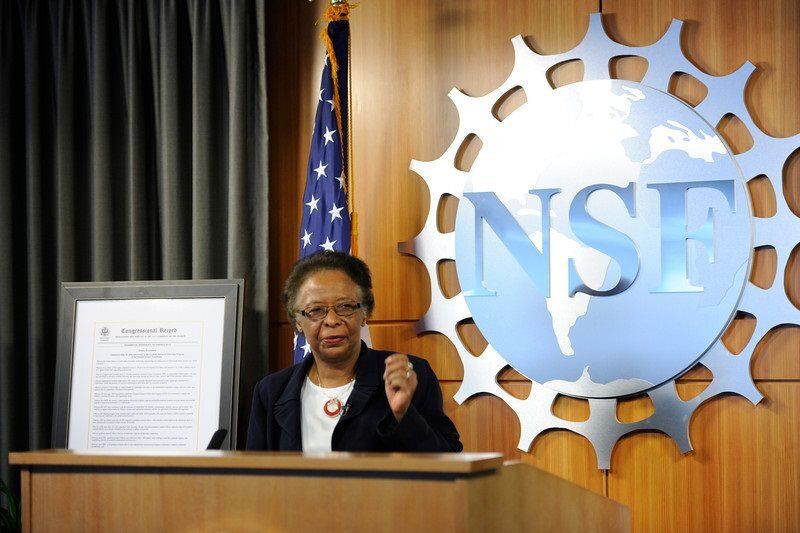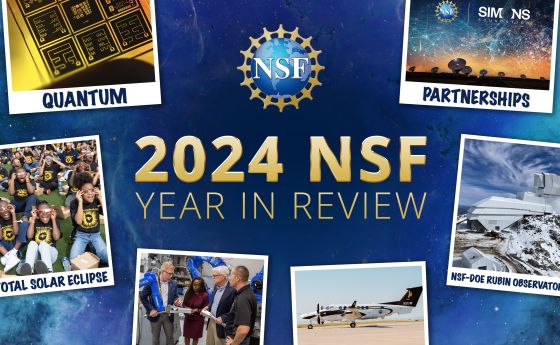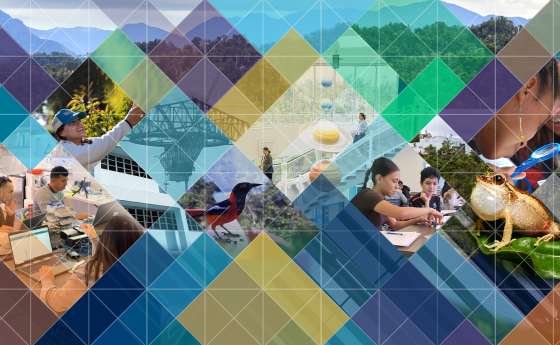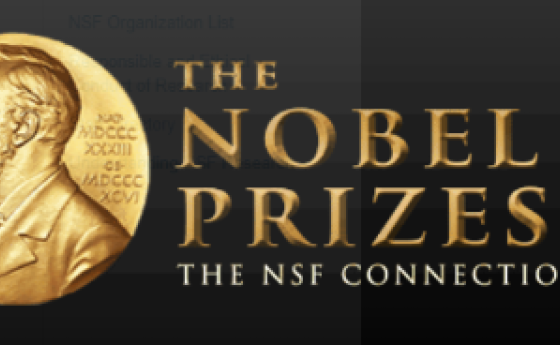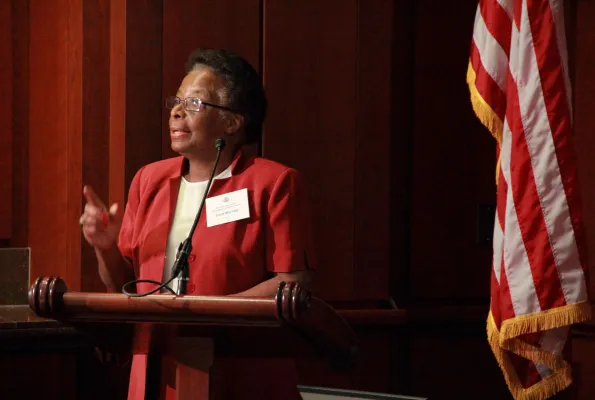
Cora B. Marrett - NSF Acting Director (2013 to 2014)
U.S. National Science Foundation pioneer Cora Marrett answers every new opportunity, no matter how groundbreaking, with a simple question: Why not? Raised the youngest of 12 in a small southern town during the era of segregation, she earned a doctorate in sociology from the University of Wisconsin and went on to lead a distinguished academic career.
At NSF, Marrett oversaw two directorates, including the first-ever Directorate for Social, Behavioral and Economic Sciences, or SBE, before becoming the agency's first Black female acting director. We caught up with Cora to hear more about her life story and the why behind her "why not."
How did your early years prepare you for a career in STEM?
I grew up in a farming community in Virginia. The education I received in those early years was so inadequate that I didn't develop an interest in science early on. We didn't have science labs, for example, and there was no chemistry whatsoever. My involvement in sociology awakened a curiosity in other fields, but it took quite a bit to get there.
What was it like growing up in a segregated school system?
There were two different educational systems, and the Black school system had the leftovers. We had no advocates on the school board, and no resources even if we had.
During my high school years, the Black students in the neighboring county complained bitterly. So, the white parents decided to close the schools all together and to open private schools for the white students.
I recall people in my county cautioning my father. "You don't want the same thing to happen here," they said. Meaning -- don't advocate for any kind of mixing.
How did you manage to not internalize that?
My parents instilled in me a love of reading. I learned there was a world out there I was not a part of, and I wanted very much to experience it. When I was offered a scholarship at Virginia Union University, I accepted it eagerly.
What challenges did you face in your early career as a woman in STEM?
Finding a position after completing my doctorate was not easy at all. My name had been submitted to the University of North Carolina, and it took some time for a response. The recruitment officer subsequently admitted it was because they'd had problems retaining women faculty.
Experiences like these led me to work on gender equity issues. I became highly involved with the Committee on the Status of Women in Sociology. My introduction to NSF was in serving as chair of the Committee on Equal Opportunities in Science and Technology, now CEOSE [Committee on Equal Opportunities in Science and Engineering]. I remained engaged in these issues long after I had other opportunities, because I had not always seen the same opportunities for others.
Describe your experience leading NSF's first Directorate for Social, Behavioral and Economic Sciences.
At the time, the behavioral sciences were incorporated into the Directorate for Biological and Behavioral Sciences. The new directorate emerged from there and also included the International Division and what was then the Division for Science Resources Studies. Those two divisions were not clearly linked to research and education in the SBE sciences. Hence, there was the challenge of bringing the diffuse elements together into a reasonably coherent whole.
Tell us about leading the Directorate for Education and Human Resources.
I agreed to head up EHR [Directorate for Education and Human Resources], knowing it was a very different operation than SBE. Different because it had significant resources even though it had a rocky history, including a time when all the education programs at NSF were eliminated. It took quite a bit to get things back in line.
The challenges centered around bringing together the different parts of EHR and making sense of the budget which was heavily influenced by what happened on Capitol Hill. We worked on developing an overarching emphasis for the directorate, and sometimes it worked. It was fascinating when people collaborated across education communities and activities.
You went on to serve as acting deputy director and acting director of NSF before being confirmed as the agency's official deputy. What were some of your greatest challenges and priorities as acting director?
There were members of Congress who were very much opposed to investments in social sciences and climate sciences, and we had to make the case for why these were important areas. This was not an easy task at all.
My objective was to strengthen the connections throughout the foundation and between NSF and its external communities. I worked very closely with the ADs, many of whom I had recruited.
Another priority was to emphasize the significance of inclusion in science and engineering and to foster the kind of outreach that would welcome diverse talent. During that time, I renewed my involvement with CEOSE and worked very hard to reestablish it as central to what NSF stands for.
At every turn, you seemed to embrace new challenges with the same question: Why not? How did you develop this level of confidence?
I think it's primarily a function of my curiosity and the love of learning given to me by my parents. Yes, some of it is a level of confidence, but it recognizes one’s own limits. One cannot know everything, and hence, what’s important is a willingness to learn and to continue to grow and contribute.

